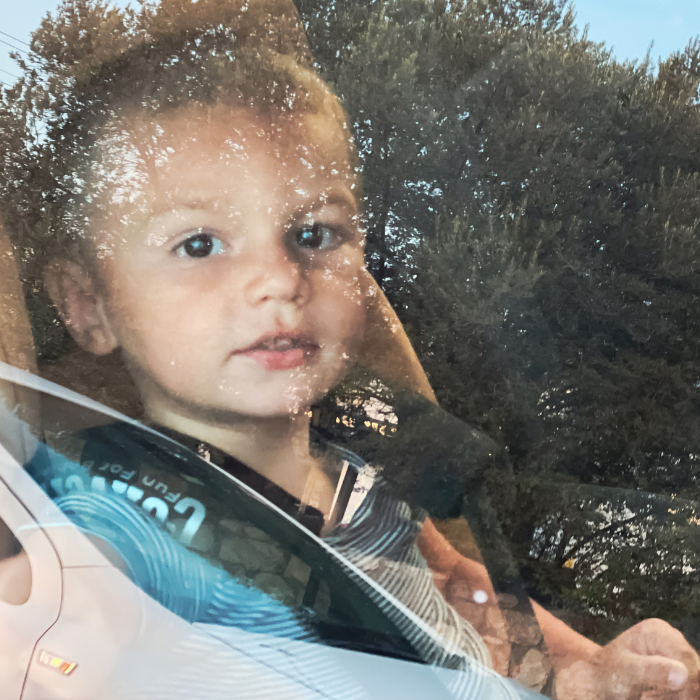
Fussy eating or an early dislike of chewing red meat can put your child on the path to an iron deficiency. Iron is an essential mineral, for growing children and pregnant women in particular. If you, or your child, get frequent headaches or feel lethargic and even dizzy, you could have a deficiency. Dr Libby explains the importance of iron in your child’s diet.
Iron deficiency is the most prevalent nutritional deficiency in the world, most commonly affecting infants, children, menstruating women and pregnant woman. In New Zealand and Australia, research suggests that between 20–30% of women of childbearing age are iron deficient or have anaemia.
Iron deficiency and iron-deficiency anaemia are two different conditions. Iron deficiency is the stage before anaemia. This is when there is a decrease in the amount of iron in each red blood cell and consequently the cell is unable to carry as much oxygen. Anaemia is when the new, infant red blood cells fail to receive enough iron and are unable to survive and form mature red blood cells, thus decreasing the amount of mature red blood cells in the body.
Iron is a critical mineral for humans. It plays a vital role in supporting our energy, vitality and beauty processes, such as the growth of our hair and nails. A simple blood test from your doctor will establish whether you are iron deficient or not. Testing is important also because some people have a tendency to store too much iron in the body and this needs to be avoided, or treated if it already exists.
Iron deficiency or anaemia is caused by inadequate dietary intake of iron, poor absorption of iron by the body, or loss of iron due to bleeding. Heavy menstrual blood loss is a common cause, as are increased demands for iron during pregnancy. In pregnant women, iron stores have to service the increased blood volume of the mother, as well as the needs of the growing baby. In young children, improper transitioning onto solid foods can cause iron deficiency. One of the main reasons that infants move onto solid food from breast milk or formula is that their stores of iron start to become low. Breast milk and formula can no longer provide all the iron a growing 6-month-old infant needs.
Iron deficiency can also be caused by blood loss from the digestive tract due to the long-term use of aspirin, or gastric ulcers, duodenal ulcers, bowel cancer, or untreated coeliac disease. I see more and more silent coeliac disease, where people are not presenting with the typical bowel symptoms. Sometimes iron deficiency, and often vitamin B12 deficiency, are the only signs of what is later diagnosed on biopsy as coeliac disease. Once gluten is removed from the diet, iron levels usually return to normal.
Fibre interferes with the absorption of dietary iron, so the fibre content of the diet must also be taken into account when determining the basis of the iron deficiency.
In the gut, calcium and iron compete for absorption, and calcium is a larger substance, so it always wins out. This is great news for your bones but not always so good for the oxygen-carrying capacity of your blood, low levels of which cause fatigue. Consuming calcium-rich foods away from iron-rich foods can make a difference to iron absorption. For example, try not to add cheese to mince dishes, and ensure that your child’s after-dinner milk drink is taken at least 30 minutes after their meal to give your child’s body time to absorb the iron from their meal before the calcium in the milk interferes with that.
Good food sources of iron include beef, lamb, eggs, mussels, sardines, lentils, and green leafy vegetables. Variety is key, as there is a small amount of iron in many foods. If you do not eat animal foods, do not assume you are iron deficient. For some vegetarians, their body utilises the iron from vegetable sources very efficiently. Vegetable sources of iron are better absorbed in the presence of vitamin C. So adding vitamin C-rich foods such as capsicums, green leafy vegetables (kale, for example), broccoli, peas to your meal, as well as eating fruit such as kiwifruit, strawberries, citrus fruit and guavas after your meal will all help absorption.
It is best to have a blood test before you supplement. Many iron supplements are constipating, but most people find this does not happen with liquid iron supplements. Always consult a medical professional before giving supplements to children and pregnant women.
the main symptoms of iron deficiency include:
- exhaustion
- shortness of breath (especially on an incline)
- muscle aches and cramps
- rapid pulse and heart palpitations
- increased anxiety
- brain fog
- poor memory and concentration
- headaches
- depressed mood
- hair loss
- increased frequency of infections.
try adding some of these iron-rich foods to your diet:
- Beef Liver
- Large Potatoes
- Spinach
- Quinoa
- Kidney Beans
- Tempeh
- Tofu
- Black Beans
- Tahini
- Broccoli
- Lean Sirloin
- Lean Ground Beef
- Chicken Breast
- Salmon
- Pumpkin Seeds
- 80% Dark Chocolate
- Dried Thyme
- Blackstrap Molasses
- Sulphite-free Dried Apricots
- Lentils
recommended daily intake
Infants 7-12 mths: 11g
Children aged 1-3: 9g 4-8: 10g 9-13: 8g
Girls aged 14-18: 15g
Boys aged 14-18: 1g
Men aged 19-70+: 8g
Women aged 19-50: 18g 50+: 8g
Pregnant women: 27g
Breastfeeding women: 9g
“One of the main reasons that infants move onto solid food from breast milk or formula is that their stores of iron start to become low.”
Dr Libby Weaver (BHSc (N&D) (Hons) PhD) is Australasia’s superstar of all things health and nutrition, combining many years of experience, learning and clinical practice to her holistic approach to health. For more information and Real Food ideas, visit www.drlibby.com








